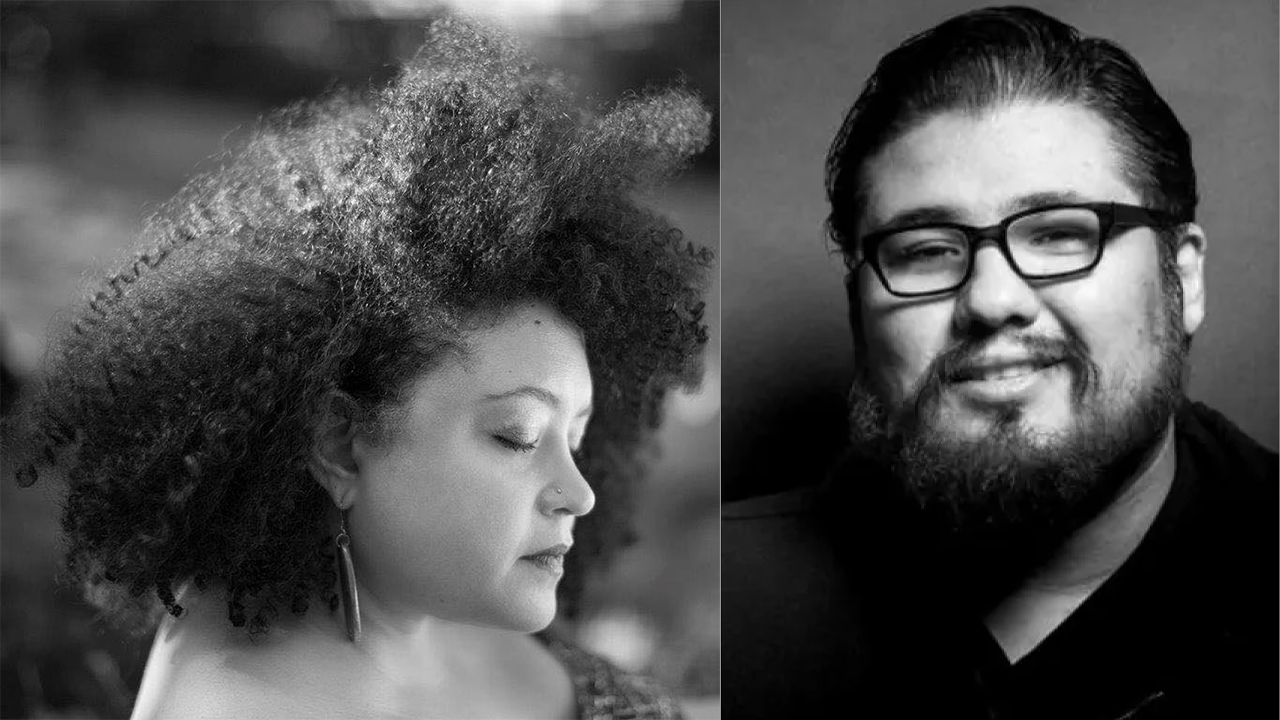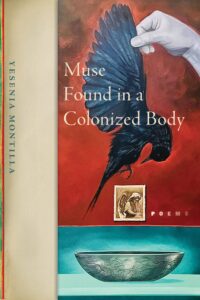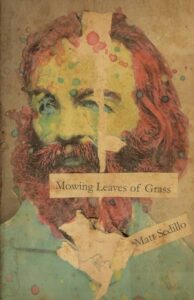
On Thursday, October 12, The Center for the Study of Race, Ethnicity & Equity will welcome Latine poets Roy Guzmán, Yesenia Montilla, and Matt Sedillo to Washington University in St. Louis for a panel discussion in celebration of Latine Heritage Month.
The evening will focus on the poets’ use of poetry to fuel social change and how their work addresses race and identity. Ahead of the event, we were delighted to speak with two of the featured guests, Yesenia Montilla and Matt Sedillo, to learn more about their relationship with poetry.
For Yesenia Montilla poetry is a meditation, identity, desire, and a vehicle for liberation. Poetry for Latine folks often carries a significant cultural and historical weight. It provides a medium through which they explore their roots, celebrate their cultural heritage, and commemorate the struggles and achievements of their communities. It becomes a way to document and share stories that may have been marginalized or erased in mainstream narratives.
“Poetry found me and has never let go.” —Yesenia Montilla
Montilla does just that in her second collection of poems, Muse Found in a Colonized Body (Four Way Books, 2022).
It is a tender salute to the vitality of marginalized communities, a middle finger to injustice, and a head nod to pop culture. The Afro-Latinx poet, educator, and translator from New York City condemns the history of a nation’s continuum of violence and greed while honoring the contributions of Latine people’s past generations and lauding the joys found in dreams and the beauty inside struggle—a testament to Montilla’s ability to balance the personal and the political.
 “I can’t separate the personal from the political,” Montilla said, “As a woman, queer, Afro-Latinx, everything I write is political. If I write about walking through a field of flowers because of my place in the landscape of the American consciousness, that poem about flowers will be a political poem. I think it’s just about being hyper-aware that as an American ‘other,’ I am always moments away from what I witness being what I experience.”
“I can’t separate the personal from the political,” Montilla said, “As a woman, queer, Afro-Latinx, everything I write is political. If I write about walking through a field of flowers because of my place in the landscape of the American consciousness, that poem about flowers will be a political poem. I think it’s just about being hyper-aware that as an American ‘other,’ I am always moments away from what I witness being what I experience.”
Personal identity can be a sight for struggle. For many individuals, especially those from underrepresented communities, aspects of their personal identity—such as race, gender, sexual orientation, ethnicity, or cultural background—have become inherently political. Even writing about personal experiences, whether they relate to sensuality, love, or nature as Yesenia writes about, can carry political weight, especially if social dimensions shape those experiences.
This co-existence of intentionality in Montilla’s poems also highlights her nonlinear approach to English words, coupled with a sacred love for Spanish, her first language.
“One hundred years from now, maybe all of us will be speaking Spanglish and never remembering that it wasn’t the norm. Like, how people who study Shakespeare find it difficult; at one time, that English was the norm like Chaucer’s English too, so language adapts, we adapt, and I think it’s important to remember this as writers and not try to contain language but to expand it, allow it to breathe and become.”
• • •
Growing up, Matt Sedillo did not know poetry would end up being his weapon to resist oppression. “I wanted to be president.” His dreams were met with a harsh reality when his father remarked: “You’ll never be president; you’re Mexican.” Bewildered, Sedillo retorted, “What do you mean? I’m from Monterey Park, California.” This exchange forced him to confront the unsettling truth that racism could be a formidable constraint on his childhood aspirations.
Undeterred by this early setback, Sedillo redirected his ambitions toward the world of art, where he would eventually find poetry as his chosen medium. His journey led him to a unique fusion of art and politics, where he aimed to transform the fiery oratory of political speeches into powerful poetic expressions.
“I wanted to create poetry out of a world of political organization and political speeches,” Sedillo explains, emphasizing his desire to harness the ability of powerful speeches to rally crowds and mobilize them towards collective action.
“I saw murals of Cesar Chavez, the Aztec kingdom, and more—all of these things intertwined in the vibrant tapestry of my surroundings.” —Matt Sedillo
Sedillo’s poetic journey has earned him the title of “the poet laureate of the struggle.” Hailing from Los Angeles, his work is deeply influenced by figures like Amiri Baraka, Diego Rivera, Cesar Chavez, Malcolm X, and Luis Javier Rodriguez. Sedillo has had the privilege of sharing the stage with Rodriguez on several occasions, absorbing the energy of those powerful speeches that once rallied communities to fight for justice.
One of Sedillo’s most acclaimed works is his book, Mowing Leaves of Grass (Flowersong Books, 2019). This fiery collection of poems delves into the raw truths of everyday working-class communities, unmasking the impact of racism, hypocrisy, and corruption. In many ways, his poems serve as a montage of spirited history spanning over 500 years of struggle. 
“My inspiration comes from growing up in the East side of Los Angeles,” Sedillo reveals. “I saw murals of Cesar Chavez, the Aztec kingdom, and more—all of these things intertwined in the vibrant tapestry of my surroundings.”
Sedillo’s poetry strives to capture the diverse cultural and ethnic experiences that inform the history of the Chicano community. Through his words, he seeks not only to represent himself but also to give voice to the rich heritage of the Chicano community.
In a world where poetry often serves as a vehicle for personal expression, Matt Sedillo’s work stands out as a testament to the power of words in the service of a greater cause. He uses poetry to amplify the voices of marginalized communities, rallying them to fight against injustice and inequality.
For Sedillo, poetry is not just an art form; it is a powerful tool for resistance, a means to challenge oppression, and a way to bridge the personal and the political. His journey from a child with lofty political dreams to “the poet laureate of the struggle” reflects the transformative potential of art and the enduring spirit of activism.
• “¿Quién Soy? ¿Quiénes Somos? A Panel Discussion with Latine Poets” will take place Thursday, October 12, 2023, at 4:30 pm at the Women’s Building Formal Lounge on the Danforth Campus of Washington University in St. Louis. This article was written for the Center for the Study of Race, Ethnicity, and Equity, a sponsor of the Heartland Journalism Fellowship program.
